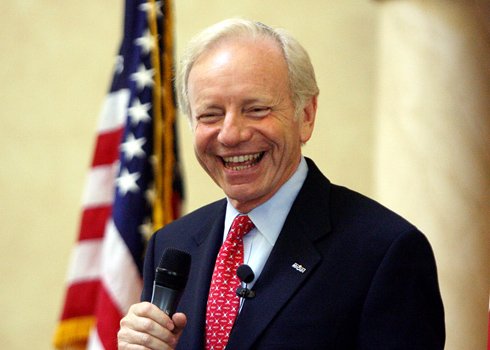The Senate took a big step toward ending the military’s ban on openly gay servicemembers today. By a vote of 63 to 33, the Senate voted to end debate on a bill repealing the military’s Don’t Ask, Don’t Tell policy, opening the door for a final Senate vote on the standalone repeal bill passed by the House Tuesday. That means a simple majority of 51 Senators can now bring the legislative fight on repealing DADT to an end. That vote is expected to come — and expected to succeed — by the end of the weekend.
(UPDATE: The final vote is now scheduled for 3 p.m. today).
Voting with the majority of Democrats were Republicans Scott Brown (MA), Mark Kirk (IL) George Voinovich (OH), Lisa Murkowski (AK), Susan Collins (ME), and Olympia Snowe (ME). Jim Bunning (R-KY), Judd Gregg (R-NH), Orrin Hatch (R-UT), and Joe Manchin (D-WV) were absent.
[TPM SLIDESHOW: It’s Over: Senate Repeals Don’t Ask, Don’t Tell]
The vote will likely be seen as a major political victory for President Obama, who pushed repeal of Don’t Ask, Don’t Tell on the campaign trail and set a year-long timetable for a legislative repeal of the policy in his State Of The Union back in January. It appears he’s about to get his wish.
For proponents of repeal, it’s important to note that the Senate vote — and President Obama’s almost certain signature on the bill — do not necessarily mean an immediate end to the military’s ban on open homosexuality. Rather, it puts the final repeal timetable entirely on President Obama’s plate. As Commander in Chief of the military, he’ll work out a final repeal timetable with the Pentagon chiefs who will implement it. You can expect the groups that have been pressuring Congress to pass repeal to now turn their attention to Obama, calling on him to end DADT as soon as possible.
[TPM SLIDESHOW: TPM Looks Back At 9 Years At War In Afghanistan]
For now, however, proponents of DADT repeal — who have equated ending the ban to the major Civil Rights legislation of the 1960s — can bask in what can only be seen as a huge victory for gay rights supporters. By ending one of the remaining institutional discriminatory policies in the U.S. government, the Senate has taken a bold step toward accepting the integration of the LGBT community.
The path to today’s vote was not clear until this week, when the House hastily passed a standalone repeal bill following the Senate GOP’s blocking of DADT repeal as part of a defense spending bill that came up earlier this month.
Sensing that time was running out, Senate Majority Leader Harry Reid surprised and angered Susan Collins (D-ME) and Sen. Joe Lieberman (I-CT) — central to the negotiations on getting the 60 votes required to end debate on the spending bill — by holding an early vote before Republican conditions were met. It was a bid to highlight the GOP’s obstruction and saddle them with the blame in the event that repeal went down. But it also provided much-needed pressure on the principles to get moving, resulting in their decision to take up DADT as a standalone issue.
After the defense bill failed, some thought repealing DADT could no longer happen this year. But Lieberman and House Majority Leader Steny Hoyer sprang into action, working together to write a standalone bill and push it through the House and Senate quickly. That struggle seems to have all but ended today.
Providing the wind in their sails, both have said, was the White House. Obama’s year-long effort to repeal DADT, which has included Pentagon leaders publicly backing repeal, and a landmark survey of hundreds of thousands of active duty servicemembers who said ending the ban would have basically no negative impact on the armed forces, kept the issue in the headlines and helped build momentum.
Gay rights groups have not let up on their push for repeal throughout the year. Fired gay and lesbian soldiers, sailors, Marines and airmen have been seen around Washington for months and months, telling their stories and urging the Congress to act. Though politicians will jockey to take all the credit for the key repeal vote today, the push from the gay rights community deserves its fair share. A federal court ruling tossing out DADT in response to a suit brought by the Log Cabin Republicans, for example, has been a major source of pro-repeal momentum from Defense Secretary Robert Gates.
The American people have come to support repeal as well. Poll after poll has shown significant majorities of the country in support of repealing the ban on openly gay service in the military, a significant shift from years past. America is ready to move on from DADT, even if many Republican politicians are not.
Repeal faced significant opposition from the GOP, most notably from Sen. John McCain (R-AZ) — who once had said he was willing to support repeal but spent most of the year finding ways to go back on that promise.
Republicans in the House and the Senate have claimed repealing DADT will hurt the military in a myriad of ways, from making recruitment tougher to literally causing more American soldiers to die. They have cited military service chiefs who have warned that repeal could damage unit cohesion — despite the public support of repeal by their superiors.
Now, it seems that at some point in the relatively near future, those predictions of doom and gloom will be put to the test.









